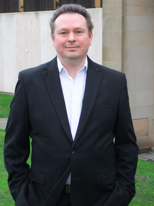Seizing the political agenda
Dr Tim Wilson, Director of the Handa Centre for the Study of Terrorism and Political Violence, on the latest terrorist attack in Paris.

Restaurants and theatres conspicuously deserted: ‘unspeakable panic’ on the streets; rumour rampant; and the city’s mayor pleading with foreign tourists not to leave. It all looks familiar enough. But actually this is a portrait of Paris in 1892, not 2017. Then the threat was anarchists; now it is Islamist extremists. But the key point is that Paris is resilient enough to outlast both.
Like the equally tragic death of PC Keith Palmer at Westminster on 22 March, the fatal shooting of a police officer on the Champs Elysees last night is an atrocity that changes everything for friends and family directly affected – but which also leaves national security capacity entirely unaffected. After all, this victim was one (extremely unlucky) officer amongst 50,000 on the streets of Paris. And by the standards of the 13 November 2015 roving carnage in which 130 members of the public died, this pin-prick attack by an ISIS-wannabe is rather unimpressive in its ambition.
Context magnifies potential impact dramatically, however. And timing here is all. With the first round of a very tight presidential election to be held this Sunday, this attack has seized the political agenda. Candidates have so far responded as if by rote: with the far-left Philippe Poutou blaming failures of social integration, and the centrist Emmanuel Macron appealing for restraint. On the right, the conservative Francois Fillon and Marine Le Pen are vigorously sparring for the distinction of sounding the most outraged. Here they have a rather easy job of it: the attacker, Karim Cheurfi, appears to have had a previous conviction for firing at police back in 2001, and to have been investigated by police only two months ago.
“It is time to stop being naïve,” Marine Le Pen exhorted, predictably enough. But true naivety resides in the belief that any free society worth living in can be entirely free from all terrorist threat. At this strikingly open moment in French (and European) politics, it is perhaps worth recalling that the existential dangers to democracy have, historically, come most often from state repression in tandem with populist movements: and not from fleeting and squalid terrorist outrages, however striking their initial impact may seem.
Dr Tim Wilson
Director of the Handa Centre for the Study of Terrorism and Political Violence
21 April 2017
Category Public interest stories